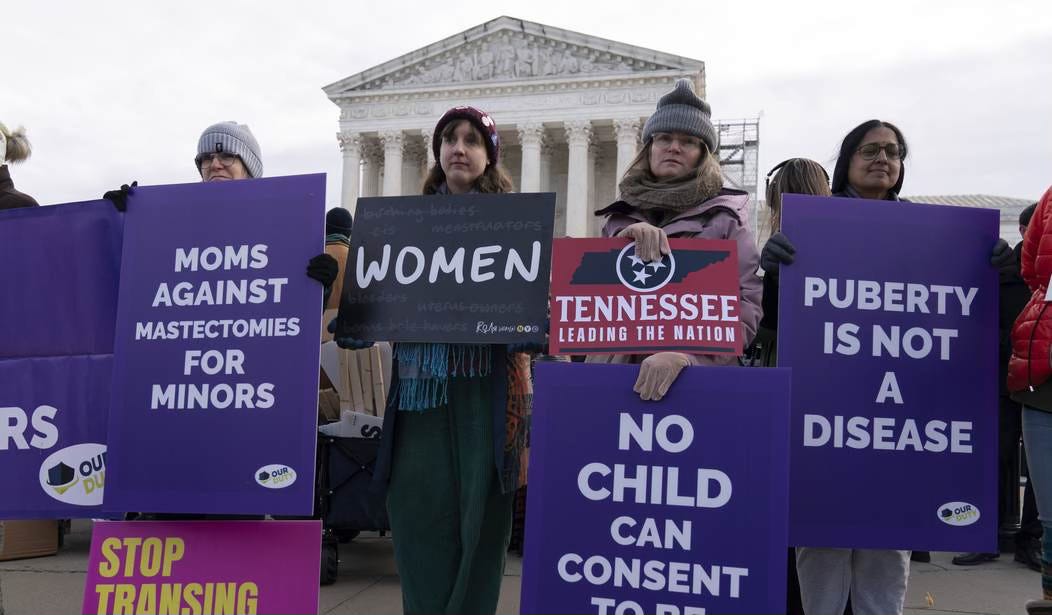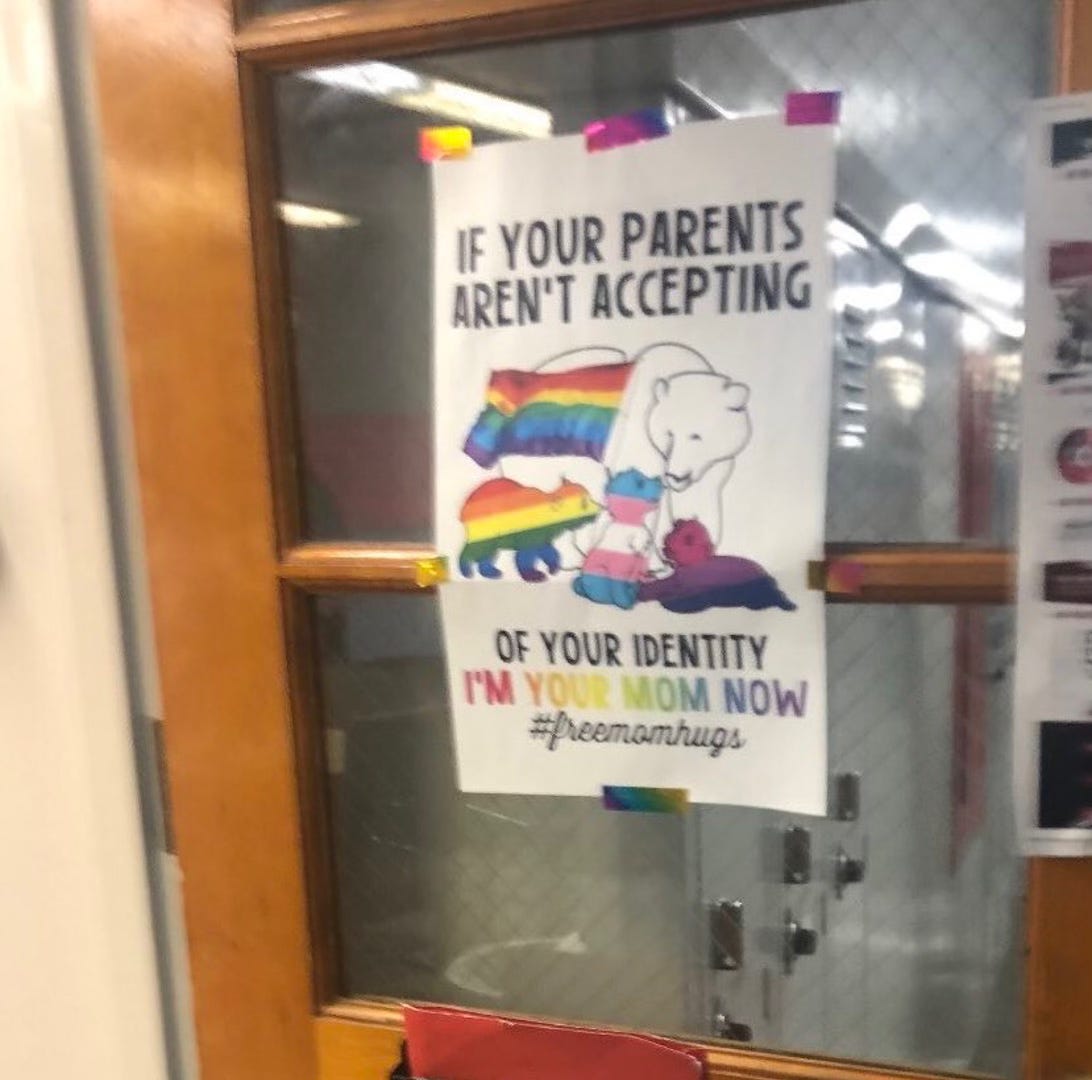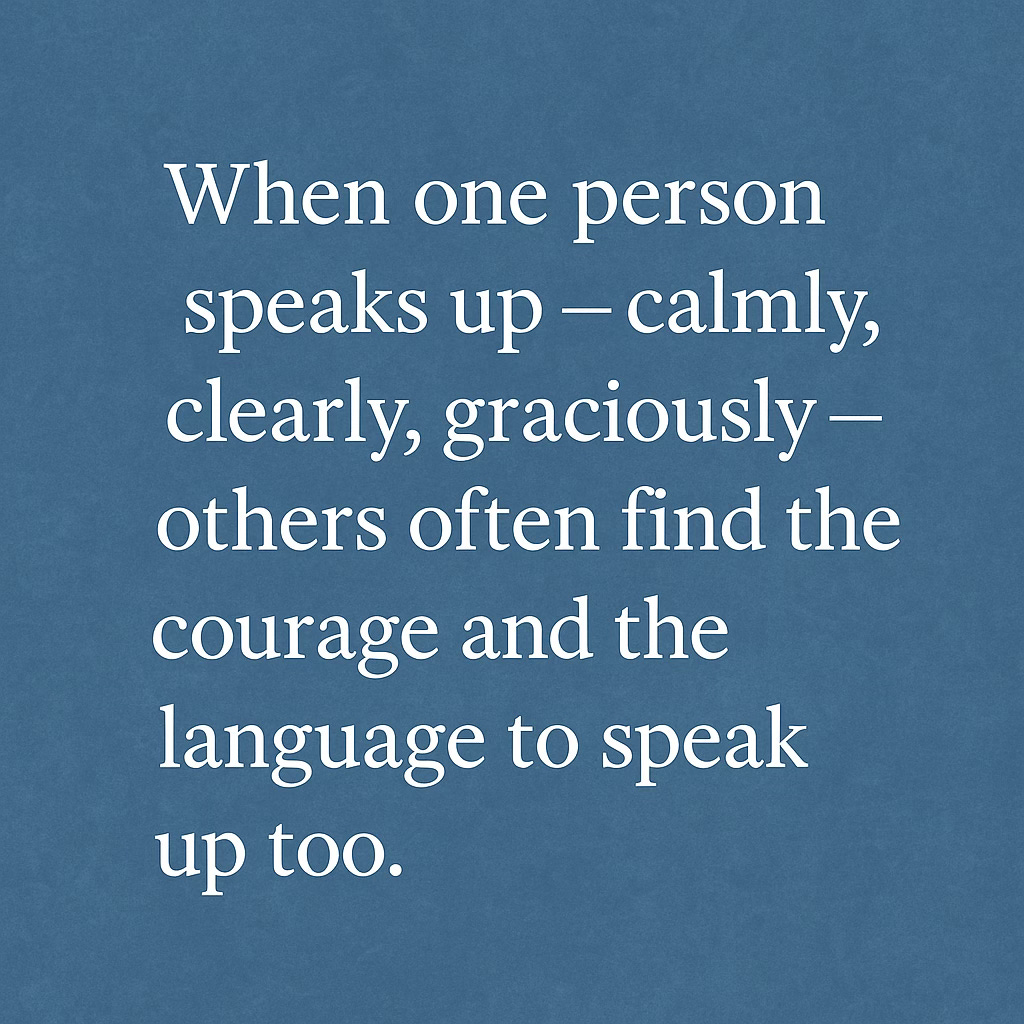Think Again: What I Learned in My Theater Board’s Gender Debate
How to Speak Hard Truths with Grace — and Actually Change Minds
What would you do if the state called you an unfit parent — not for hurting your child, but for refusing to pretend your daughter is your son?
That’s the reality Colorado families could soon face under a bill advancing in the state legislature. And in Maryland, the Supreme Court is now weighing whether parents have any say at all over LGBTQ content taught in elementary school.
Policies once dismissed as fringe are ubiquitous. Silence shouldn’t become complicity.
Our lives begin to end the day we become silent about things that matter.
— Martin Luther King, Jr.
Two summers ago, I saw where this leads — not while in a courtroom, but around a boardroom table.
I’d served on the board of a beloved theater company for over two decades. Then one day, a concerned parent forwarded me the children’s program Pronoun Policy, which required kids as young as five to introduce themselves by both name and pronoun. If a child didn’t volunteer a pronoun, that child would be labeled “they.”
I was mystified. At a board meeting weeks earlier, we’d agreed that teaching gender ideology was not the theater’s role. If a child had special considerations — disability, learning difference, or gender concern — staff would address it privately, in consultation with the family.
It turns out, the Pronoun Policy had been in place for over a year.
How I used my voice to change this policy – and why you should be willing to do the same – is what this post is about.
Because now, as I watch headlines mount….
Biological males in women’s sports and prisons,
European countries shuttering their pediatric gender medicine programs after scientific studies (the UK’s Cass Review and the US’s HHS Review) confirmed the harm
The unanimous UK Supreme Court ruling that the “concept of sex is binary”
The US Supreme Court weighing parental opt-out rights in public schools
And Colorado advancing House Bill 25-1312, which could classify parental disagreement with a child’s gender identity as abuse….
…I realize the concerns I raised back then – once considered fringe – are now front-page news.
And given my back-story, I often think, there but for the grace of God go I.
I was a tomboy who dreamed of being a businessman in a suit with a briefcase. If I were a child today, I might have believed what exploding numbers of girls now do — that I was “born in the wrong body.” A well-meaning teacher might have celebrated me for “coming out,” and ushered me onto a path that would have robbed me of my husband, my motherhood, and the life I now cherish.
But I was allowed to grow up, and that’s what I want for every child.
Realizing that goal requires more of us to speak up — not to win arguments, but to win people. It means asking questions, telling stories, and helping others discover the common ground they instinctively share — even if they don’t yet realize it.
But how do you summon the courage and composure to speak when facing hostility? How do you work with silent allies too intimidated to join you?
Why I Spoke Up: Protecting Children and Women from Gender Ideology
At first, I dismissed the pronoun trend as performative, even silly. But several eye-opening developments convinced me that gender ideology – and the pronoun rituals it spawned – are fueling an unscientific, ideologically driven experiment on vulnerable children.
Even the New York Times has raised concerns – about the long-term risks of youth medicalization and the quiet trend of schools socially transitioning children without parental consent. The Times also verified the claims of whistleblower Jamie Reed, a self-described “queer woman” married to a “transman” – who denounced the care model she once administered at a leading pediatric gender clinic.
Her conclusion was chilling: what’s happening to kids in these clinics is “morally and medically appalling.” Far from preventing suicide, gender medicine can lead to sterility, loss of sexual function and even death.
Meanwhile, champion swimmer Riley Gaines was sounding alarms about injustices facing women in sports. At the 2022 NCAA Women’s Championship, she tied Lia Thomas, a biological male who had previously competed in the men’s division. Gaines was forced to undress in front of Thomas and then watched him awarded the trophy. Her case became a symbol of what women are being asked to sacrifice — not just their dignity, but chances for scholarships, titles and recognition.
Gaines was vilified for speaking out. But she later tweeted:
That resonated. If silence enables harm, then speaking up — even when it’s uncomfortable — is a moral duty.
So when I received the children’s program Pronoun Policy, I knew this was my moment to speak. To protect children from confusion and irreversible harm. To defend fairness for girls. And to keep parents from being erased from their own children’s lives.
Braving the Backlash: What Happens When You’re the One Who Speaks Up
After reading the Pronoun Policy, I emailed the theater board’s executive committee. To clarify my concerns, I linked to a short video of Katie Lennon – a young “detransitioner” who had just testified before the New Hampshire legislature.
Katie explained how, as a teen ashamed of her changing body, she asked to be called by a male name and pronouns – and everyone affirmed her. When that wasn’t enough, she escalated to testosterone and irreversible surgeries.
“All I became was a mutilated and abused version of my old self,” she now says. “Social transition is a big deal — and we’re lying when we say any of this is reversible.”
I thought sharing Katie’s story might spark a thoughtful discussion by the committee. Instead, I walked into a storm.
The theater’s managing director came to the meeting loaded for bear. Shaking with outrage, he launched into a defense of gender-affirming care, citing medical and academic papers. He accused me of being regressive, transphobic, and politically fringe — even taking offense that I’d used the label “gender dysphoric,” a mental illness term. His message was unmistakable: YOU are the problem.
Stunned by the hostility – but encouraged by the knowledge that our board (which included a gay member) wanted to keep ideology out of the children’s program – I chose to respond with calm and grace. I asked if we could at least agree on this: we both want to protect children, even if our methods differ. My approach, I explained, was to handle special considerations privately, in consultation with parents.
Then I asked:
Why plant the seed in a child’s mind that if they don’t like their body, they can change it? Who likes their body during puberty, anyway?
And if we teach kids to choose their own pronouns, aren’t we confusing them — and potentially pitting them against their parents? Why would we want to do that?
Finally, I shared my own story. As a tomboy ashamed of my developing body, I might have been swept into this movement myself. But my mother affirmed me in the truest sense of the word — not by changing who I was, but by helping me accept myself.
“You can be a girl and still play with the boys,” she told me. “You can grow up to be anything you want.”
Her love — and her message — stayed with me. That, I told the committee, is what real gender-affirming care looks like: not reshaping a child’s body but reassuring the child that they’re loved just the way they are.
That’s the kind of care and affirmation we should be protecting, not overriding.
In the end, it was agreed that children would no longer be asked to declare pronouns. But the culture of the organization – once a haven of collegiality and artistic joy – now felt politicized and tribal. Despite my decades of service, I felt marginalized. Without the trust and camaraderie that had made my work so fulfilling, I stepped away.
The Deeper Harms: Who Pays the Price for Our Silence?
These debates aren’t theoretical. Behind the slogans are real people — children on irreversible medical paths, women denied fairness and dignity, and parents powerless to protect their kids.
When I raised concerns, stories like Katie Lennon and Abigail Martinez, a California woman whose daughter was taken from her care and later died by suicide — were dismissed. Rather than grapple with the consequences of the transgender contagion, some declined to enter the fray, some urged accepting progressive norms. It’s about inclusivity, after all.
But who’s being included — and at whose expense?
The deeper harm isn’t just what happens to kids. It’s what happens to society when we lose the moral clarity to say: This is wrong. When we sideline parents and outsource compassion to people who don’t know our children, we don’t just lose control. We lose trust. And children lose their safeguard.
That’s why I know that speaking up was the right thing to do. So, school signs like this:
…can no longer lead to this:
The Tipping Point: Truth-Tellers Who Turned the Tide
One reason the trans movement is finally losing ground — in medicine, law, and culture — is that a coalition of truth-tellers refused to stay silent.
J.K. Rowling
Perhaps no figure has had greater impact than J.K. Rowling. Her carefully worded critiques of gender ideology — particularly its erasure of women and exploitation of confused youth — have gone viral, despite relentless backlash. On the five-year anniversary of her first public stand, she tweeted:
Bill Maher
Even comedian Bill Maher has become a voice of reason. In a recent monologue, he called out the transgender movement’s manipulation of children:
Children aren’t miniature adults – they’re gullible morons who’ll believe anything to please grown-ups... Endlessly talking about gender to six-year-olds isn’t just inappropriate. It’s what the law would call entrapment.
…And if you think some of that isn't going on with gender in schools, you're not watching enough Tik Tok videos.
Watch his monologue here:
Kate Harris
Among the most courageous voices is Kate Harris, co-founder of the UK’s LGB Alliance. She is part of a growing movement of gay and lesbian advocates warning that gender ideology isn’t liberating same-sex-attracted youth — it’s erasing them. By pushing gender-nonconforming kids — many of whom would grow up to be gay — toward hormones and surgery, it has become a modern form of conversion therapy.
When the trans activist group Mermaids sued to revoke LGB Alliance’s charitable status, Kate helped lead the defense to victory, at great personal cost. The five-day hearing was turned into a verbatim play by Irish journalist and playwright Phelim McAleer, also on Substack. The play’s filmed version, Trans on Trial, captures every shocking moment.
Kate’s closing remarks from the trial transported me back to my own childhood:
I was put in the boys’ section at school for sports. I was pretty lonely. If I were 12 today, I’m 100% sure I would have jumped at the special attention of being told I might be a boy. I might have fallen for the line that I was ‘born in the wrong body.’ I would’ve pushed for puberty blockers, hormones, surgery — and I would have been harmed.
But I was allowed to grow up. And I became a happy lesbian.
Watch Kate’s stirring closing argument starting at 1:28:00 in Trans on Trial
Final Word: Use Your Voice
While my story differs from Kate’s, our message is the same.
We can protect children, not by affirming their confusion, but by affirming their right to grow up whole. Rather than change children’s bodies, let’s change minds — by helping people Think Again.
If I’ve persuaded you of anything, I hope it’s this: when one person speaks up — calmly, clearly, graciously — others often find the courage and the language to speak up too.
So, if you’ve hesitated to speak, here’s your encouragement: You don’t have to raise your voice to make a difference. You just have to use it.
Speak up — not in anger, but in love. Not to punish, but to protect.
Think Again: Shouldn’t every child have the same chance Kate and I did — to grow up whole?









Wonderfully written – thought provoking and truly inspiring. Thank you for sharing!
Outstanding article. Thought provoking. Always learning from you, Melanie